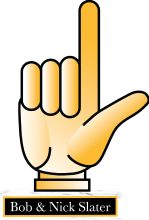“One day I will find the right words, and they will be simple.” Jack Kerouac, author
What can we learn from Wordle, the current vocabulary game sensation? Lots, actually, and not just new five-letter words. If you’ve somehow missed it, Wordle is the new online vocabulary game that has taken the USA, and much of the world, by storm. It’s refreshingly simple, and can’t be found on an app, or in the Metaverse, but instead on a website (how charmingly old-school!). The goal of Wordle is straightforward: you must guess a five-letter word, and you have six tries to do it. Each guess lets you know how close (or not) you are to success, as the letters change colors to either gray (letter doesn’t appear in the correct word at all), yellow (letter appears in the word but in a different “slot”), or green (letter appears in the word, and in the same slot). It’s simple, fun, and — perhaps best — you can only play once per day.
 Here in the UK, Wordle is very popular but not free from controversy. The problem? The “Americanising” (British spelling, of course) of certain common words. Though they haven’t reached French-level pride in language, the Brits don’t appreciate our cheeky tweaks of certain words, whether it’s dropping a “u” from “color,” or upgrading from an “s” to a “z” in “criticize.” The current uproar is over a recent Wordle word, and it’s somewhat ironic: humor, spelled of course without the “u.” The Brits are not laughing.
Here in the UK, Wordle is very popular but not free from controversy. The problem? The “Americanising” (British spelling, of course) of certain common words. Though they haven’t reached French-level pride in language, the Brits don’t appreciate our cheeky tweaks of certain words, whether it’s dropping a “u” from “color,” or upgrading from an “s” to a “z” in “criticize.” The current uproar is over a recent Wordle word, and it’s somewhat ironic: humor, spelled of course without the “u.” The Brits are not laughing.
Of course, here at LOA! we like to look at trends, news items, etc., and see if we can apply them to our mission — namely, to help young professionals navigate the first few years of their careers. And lo and behold, we can do that with Wordle!
- Identify a problem, and solve it. What problem did Wordle’s creator, software engineer Josh Wardle, want to solve? Lockdown boredom! Something we can all relate to. Now how does this apply to you, a young professional, at work? You’ll add to your value if you can identify a problem at work — whether it be great or small — and present solutions to your manager or decision-maker. This second part is key! It’s easy to spot a problem, much less easy to fix it. Don’t tell your manager that there is a problem, and leave it to her to sort out. Come with solutions.
- Simple is OK! The Wordle game is uncomplicated, and the website is too. No pop-ups, no ads, no requests to sign up for a newsletter. As a young professional, you might feel like you’re being overloaded with information, tasks, and with responsibilities. That you’re being pulled in a million different directions at once. It’s normal to feel this way, but best to take action before you become completely overwhelmed and your work suffers for it. Do you have a relationship with your manager so that you can ask to streamline your responsibilities, at least temporarily? If not, cultivate such a relationship. There’s no shame in “simplifying” your workload so that you can focus on one or two tasks, programs, projects, etc., and get great at them. Better to be great at one or two things, than “meh” at several, we say.
- There is great joy in giving to others. Josh Wardle didn’t develop his game to get money or fame (though he did recently acquire a bit of both, having sold Wordle to The New York Times). He created Wordle for his partner, who enjoys word games and crossword puzzles. This is much more than just a business lesson, of course — it’s also a life lesson. But it does apply to business. We believe that the greatest, most lasting value of your career is the relationships that you make along the way. It’s the people, not the product, or the profit. As you launch your career, keep in mind that it’s people and relationships that will help you get to where you want to go.
Source: “Wordle is a Love Story.” The New York Times. January 3, 2022.


